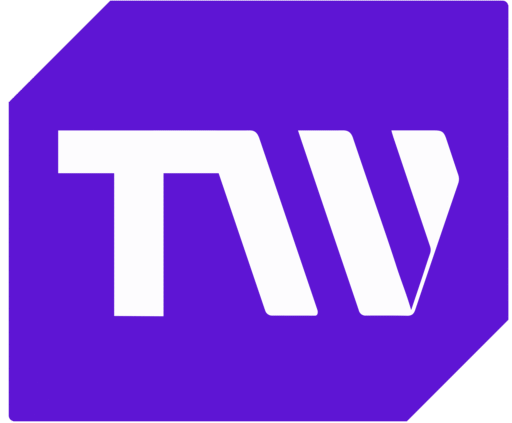Building and leveraging professional networks for career growth.
Networking is an essential requisite for career success. The importance of a solid and well-maintained professional network in the quickly changing modern workplace cannot be exaggerated.
Networking is not just about accumulating contacts. It is about cultivating genuine relationships that can empower you with invaluable support, guidance, promotions, partnerships, and opportunities throughout your career journey. The beauty of networking is that it opens doors to limitless opportunities you can harness to your advantage.
Whether you’re a recent graduate embarking on a professional path or a seasoned professional looking to expand your horizons, mastering the art of networking is essential for long-term career success and growth. This article will explore how to leverage a professional network for career growth and success.
Effective Networking Tips
Many individuals in the career society tend to see the idea of networking as pushy and demanding. As much as they psychologically embrace the profit that it brings, making the move seems like a big deal. This laxness is quite prevalent among the newbies in the space, as they tend to care about how they are perceived.
This piece will help you navigate uncomfortable networking situations and take the room the next time you find yourself among professionals.
1. Be Confident

There’s nothing better than displaying your confidence. Confidence during a networking event will help you make more beneficial connections and successfully navigate the occasion.
When you’re getting ready for a networking event, it’s a good idea to practice your answers to frequently asked questions, such as “Tell me about yourself” or “How long have you been in the industry?” Quickly having a prepared response will guarantee a seamless delivery.
Maintaining eye contact, being friendly, and flashing your brightest grin can all contribute to your confidence level. During the gathering, discuss with someone, stand up straight, make eye contact, and give a solid handshake when necessary. This subtle communication technique can improve communication flow and convey confidence.
2. Come Prepared With a Goal in Mind
Your preparation must match whatever type of opportunity you wish to attract. You’ll need to work extra hard in addition to attending the event, which involves doing some advanced research on the speakers, participants, and relevant themes. Putting this in place will assist you in determining the people and subjects you wish to connect with.
You could also ask yourself specific questions like “Whom and why do I want to meet?”
Examine the event’s specifics to see if, in the unlikely case, resources or attendance lists are made available. Take a moment to peruse the guest list. I am looking for potential guests if this is accessible.
You may find prospective customers, mentors, or coworkers you want to communicate with.
Setting clear networking goals can help you prepare effectively and maintain a sense of purpose during networking events. This will lead to better alignment with your connections and less ambiguity in your conversations, giving you a sense of preparedness and focus.
3. Have Some Conversation Starters Ready

When you are in a networking environment, starting a conversation or approaching a large or small group can be intimidating. Your knowledge of the right approach could be the game changer.
Strategically position yourself and ease into the room by cheerfully introducing yourself to another individual looking for someone to talk to.
Ensure you are well-updated on industry news and trends to spark conversations confidently. If you don’t have anyone to talk to, check out those who seem to distract themselves with their phones. They might also be on the lookout for someone to engage with.
Once you begin to engage another person, begin the conversation by asking for their thoughts on topics that interest you. This way, you can gauge whether they are also new to the space or professionals.
Great conversation starters could include;
- What is your line of work?
- Why did you come to this event?
- What are your thoughts on the event thus far?
4. Leverage Online networks

As good as the face-to-face connection is, there must still be a means to sustain conversations and make the most of them. Whether you successfully networked at an event or established an online relationship on-site, the online platform plays a significant role in sustaining a connection.
In this fast-paced digital era, where activity is accelerated and resources are indispensable for extending your business network, connecting with industry peers is possible beyond the traditional face-to-face meeting.
It is advisable to join virtual communities on social networks like LinkedIn, where you can connect with industry professionals or recruiters who share job titles across multiple industries.
Additionally, consider engaging in dialogues and joining organizations related to your sector. This way, you can expand your network abroad and stay updated on industry trends. Virtual spaces exist on social networking sites like LinkedIn for business professionals to interact, participate, and trade skills.
Networking Do’s and Don’t’s
Networking is an essential marketing tool whose role should be emphasized in every career space. Whether it’s a face-to-face event, a less formal after-work coffee, or an online and social networking method, certain behaviors can help you make the best of it and others you should avoid. These are commonly referred to as ‘networking dos and don’ts ‘.
DO’S;
- Properly position yourself: Putting your best foot forward is expedient when you find yourself in a networking environment. There is no significance in hiding yourself from the crowd. You made the significant step of availing yourself of the event, so make it worthwhile.
- Be attentive yet conversational: avoid being a passive listener. Don’t just put the demand of the conversation on others; nod your head in agreement, smile when you need to, and most importantly, say something relevant.
- Be audible enough: speak your name clearly, and ensure that it is the first and last thing that you do.
- Be thankful: if someone has assisted you, please remember to thank them. When someone takes the time to respond to your queries, and you don’t hear back, it turns them off.
- Being true to yourself is crucial in networking: It’s about being open and honest about your work, goals, and what you want from your current position and the industry. Before attending an event, ensure that any information about you available online and on social media, including images, is correct and current. This authenticity will give your connections a genuine perception of you.
DON’T’S
- Avoid making outright employment requests. Instead, say that you are seeking opportunities or career guidance and inquire if they know of somebody you should contact.
- Never let a title or reputation frighten you.
- Be careful not to compliment the other person overly. Don’t use slang and jargon or delve into unsuitable subjects like gossip or the like
Networking in Different Settings
Whether you are trying to grow in your field or looking forward to navigating another career path, putting a good networking strategy in place is expedient. This way, you can save yourself the stress of shooting without precision and, instead, properly position yourself for opportunities.
Below are some tips to help you adapt your networking strategy to different contexts and fields and achieve your goals.
1. Online Networking
Online networking meets and exchanges information with business professionals utilizing the same concepts as conventional networking, but instead of the customary face-to-face encounters, connections are made through digital means. When used appropriately, social media sites like Facebook, LinkedIn, and Twitter can be used for genuine online networking. In some circumstances, online networking can be a better option, but it takes time to grow a following. Virtual networking is more practical in other situations since it eliminates geographical restrictions.
Ensure you stand out and are not caught in the web of bothering or spamming your potential networks. Whenever you attempt to reach out, it is also crucial to be considerate and courteous by obtaining consent or providing something of value before making unsolicited requests, messages, or promotions. To stay in touch and gradually develop a connection, you should be persistent and follow up following every encounter.
2. Face-to-Face Networking

In-person networking facilitates establishing credibility, rapport, and trust with people you meet in person. You can use various possibilities to network in person, including conferences, workshops, leisure meetings, volunteer work, and more. Some excellent practices to maximize face-to-face networking include being proactive and organized by researching the event and participants in advance.
In addition to producing business leads and connecting you with recruiters and employers, face-to-face networking can help you meet new people and forge closer ties with those you already know. Since most senior-level executive jobs are not posted on public platforms, well-connected people frequently take the lead in seeking out new chances. Networking is unavoidably an integral component of your career management plan and social media job search chances, as it also helps you strengthen your bonds with essential contacts.
3. Event Networking
Meeting lots of people quickly who have similar goals, hobbies, or backgrounds can be accomplished through event networking. Plan and follow up to maximize your connections and save time and possibilities. When selecting events that fit with your mission, objectives, and values, use strategy the right strategy.
Ensure your pitch, story, or introduction is straightforward, highlights your accomplishments, talents, or interests, and provides something of value, such as recommendations, counsel, or feedback. Additionally, make sure you take down and preserve the contact of every individual you connect with. Advisably, send them a customized message within the first 24 hours of connection. By networking successfully in various contexts, you may expand your network, influence, and impact in your community.
Remember, you can meet anyone worldwide at an event if you plan. Ensure you regularly attend industry events and conduct consistent research to identify your target connections. Using these pointers, you can create enduring relationships while customizing your approach to fit various objectives and situations.
Leveraging Networking for Career Advancement and Opportunities.

Networking is the key to getting new opportunities in your job. By actively cultivating a diverse network of experts, attending industry events, and interacting with online platforms such as LinkedIn, people can showcase their expertise, establish connections with mentors, and obtain valuable information about potential career alternatives. The capacity to volunteer for professional groups and network within current organizations raises awareness, opens doors for internal promotions, and forges business alliances.
Being aggressive, dependable, and flexible in networking creates a win-win atmosphere that fosters deep connections and expedites career advancement. Through efficient networking, individuals can access a wealth of information, support, and industry knowledge, propelling them toward a prosperous and fulfilling profession.
Utilizing LinkedIn profiles
LinkedIn is Known as the most populated professional networking site in the world. With 7566 million users and a presence in over 200 countries, it is regarded as one of the most significant social media platforms, with many possible contacts!
Over the years, LinkedIn has become a way to get hired, find talent, and build a professional network and a personal brand. It is primarily regarded as an online resume because it presents multiple potentials without physical contact.
Additionally, LinkedIn users build relationships with clients and colleagues, showcase their expertise and knowledge, close more deals, and grow their company’s employer brand.
The evolution of LinkedIn has been fascinating to watch. The social platform helps professionals raise their profiles, increase brand recognition, and hire the right personnel.
Tips for Optimizing LinkedIn Profile
To improve your LinkedIn search ranking and foster credibility with potential connections and followers, you must complete every profile aspect, showcasing your expertise, accomplishments, and personality.
When optimizing your LinkedIn profile, there are a few things to focus on. While some are basic, others are more advanced that you may not have considered before.
1. Fill in accurate information about yourself.
If you value networking and building a unique brand, you must be intentional about every piece of information you post. Remember, LinkedIn is your virtual resume, and it can potentially attract recruiters or important networks to you.
It would help if you did the necessary research on some professional profiles in your field of interest. By doing this, you have a template of how your profiles should be. Important information that should be on your profile includes
- A clear profile picture: when setting up your profile, you must upload a solid and visible display picture. Ensure that you post a picture clear enough for your networks and recruiters to trust who you are.
- Background photo: The section for your background photo is slightly behind your profile photo. It should contain information about your work or passions and be more creative about your current company.
- Profile headline: Be smart when creating your profile headline. Use creative and descriptive words, and ensure it has keywords about your field of expertise.
- About You: The About You section gives in-depth details about what you do. Advisably, a star with a compelling story or experience that makes the reader want to click on see more.
- Fill out your Work experience: Every experience you have gained matters, whether voluntary or paid. It gives you a level of dividend in the eyes of your potential network or recruiter. If you have a too-long work history, you can omit it and add the most recent and relevant experience.
- Education and skills: Include all your credentials, educational background, and skill certification on your profile.
2. Contact and connect with other LinkedIn users.
LinkedIn allows you to network with individuals and organizations in your sector. This is a fantastic method for sharing knowledge with others in your industry and keeping abreast of the most recent advancements. Anyone can use the site and accept your invitations to connect, but they must have a LinkedIn account to do so.
Your connections are saved by LinkedIn and added to a list called My Network. You can view a person’s publicly accessible connections and profile when you establish a new connection. You make these into “second-degree connections.” By inviting them to engage with you directly, you may take advantage of even more networking chances
Final thoughts on the importance of networking
80% of professionals recommend that networking is pivotal for your career progress, alongside its privilege in helping you land your ideal jobs. Whether your goal is to advance your career, find a new job, discover new opportunities, stay current with industry trends, or connect with your ideal mentor, professional networking is a continuous process that demands effort, authenticity, and perseverance.
Now is the time to take your personal and professional networking endeavors to the next level. Equipped with the knowledge above, you can set goals, develop strategies, and take concrete steps toward becoming a networking powerhouse. By investing in your networking skills and cultivating genuine connections, you can be sure to thrive in your career and open doors to endless possibilities.


